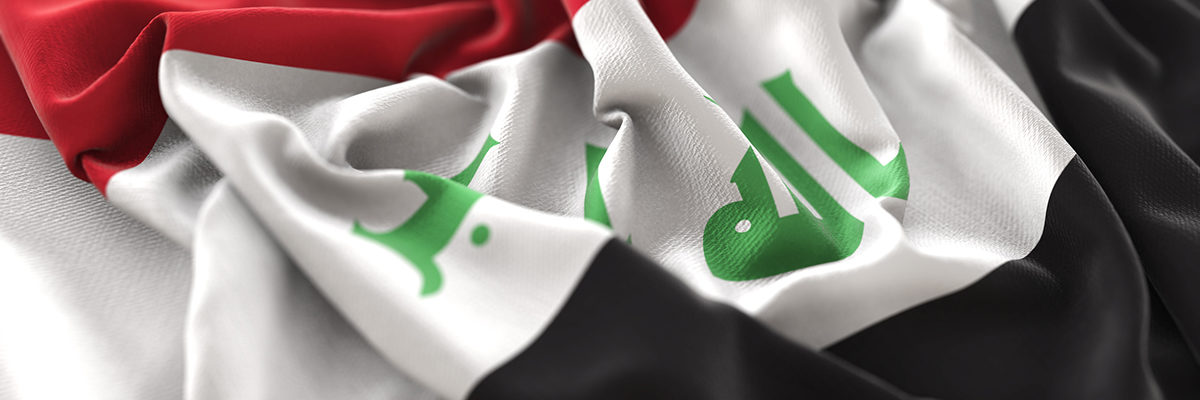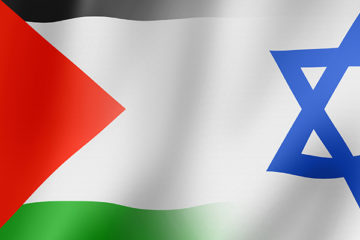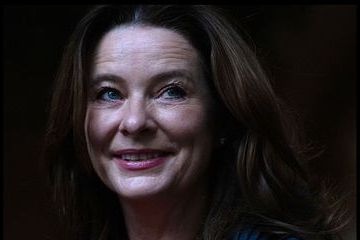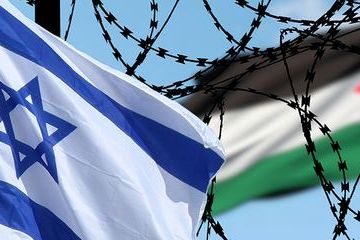NASUWT International Officer Abdullah Muhsin has maintained strong links with Iraq since 2012 when he was forced to resign as foreign envoy for the GFIW (now the GFITU) due to security concerns. This latest report was first published in International Union Rights magazine.
The GFITU split away from the GFIW when its internal integrity was compromised by the government of Iraq at the end of 2011/early 2012.
The GFITU was subsequently admitted to the ITUC six years later as a full member in November/December 2017. The GFITU held its third national election conference in central Baghdad on 31 March 2018 in which four women out of 13 were elected to the Executive board. Ali Raheem was re-elected again as President of the GFITU.
Representatives of the ITUC, ILO and Global Unions were present. The ITUC Global Rights Index 2018 rated Iraq as 4, indicating systematic violations of rights. Iraq National Polity Iraq held its fourth post-2003 National General Election on 12 May 2018.
The incumbent Prime Minister assumed power immediately after Isis terrorist gangs overran and occupied one third of Iraq in June 2014, due to the deep sectarian approach by former Iraqi Prime Minister Mr Al Maliki and extreme national disunity among post-2003 ruling elites.
The incumbent Prime Minister is an Islamic moderate working to establish a national political consensus to govern the country post-General Election along non-sectarian lines; aiming to maintain and protect Iraq’s internationally recognised sovereign integrity, which has been - and still is - under constant threat from sectarianism and separatist tendencies within dominant ruling elites that have been working since 2003 to divide Iraq into three sectarian and nationalistic statelets.
The incumbent Prime Minister is aiming to implement social and economic programmes that seek to improve the living standards of all Iraqis. Iraq is now witnessing a national trans-sectarian pro-Iraq grass roots mass social protest movement, that is organised and led for the last three years by the Iraqi Communist Party, al Sadr followers (the al Istiqhama National Party), liberals, and social democratic parties. These political forces formed an alliance to contest the 12 May national election. They called it SAAIRUN.
The alliance manifesto states that its primary objective is the eradication of widespread corruption, an end to identity politics that have governed Iraq post-2003, and the provision of basic services that have been in short supply since 2003 (i.e. clean water, electricity, healthcare, jobs, housing and education). It is worth noting that living standards for most Iraqis have regressed considerably post-2003. Many people have no access to clean drinking water.
Children and elderly people are dying in huge numbers due to a lack of healthcare. Illiteracy across Iraq has increased considerably.
Millions of children (girls and boys) are now doing child labour and not attending school. Iraq’s incumbent Prime Minister has worked hard to secure a landslide election victory on 12 May in order to implement his programme and vision of a “unified, democratic and peaceful” Iraq. He is leading an electoral coalition that is called Nasr (Victory) alliance.
The Nasr electoral alliance, which is composed of various Iraqi communal and sectarian affiliations, was seen as the front-runner to win the 12 May national election, but it only came third with 42 seats. Iran-backed Shia strong militia leader and former Transport Minister Hadi al-Amiri’s Fateh (Conquest) Coalition was second, while the surprising outcome of the election is that SAAIRUN came first, wining 54 parliamentary seats.
The SAAIRUN victory come about as a result of a number of key factors, including that a large percentage of Iraqi voters boycotted the election and that the majority of those voting voted for real change.
Over 200 of 329 MPs lost their seats, including that of the Speaker and Deputy Speaker. The national election was marred by election irregularities and fraud. The UN’s latest report on Iraq cited election fraud but endorsed the results. Parliament held session in early June and passed a law mandating the manual recount of ballots across Iraq. The law annulled votes cast by Iraqis living abroad and by internally displaced Iraqi refugees. To complicate the situation further, a storage site that held half of Baghdad’s ballots boxes was set on fire.
The Prime Minister said “this is a plot to harm Iraq and its democracy”. It was a deliberate act. Who will govern Iraq is yet unclear. But what is evident is that dominant sectarian forces supported by regional power don’t want to give up power at any cost. It is an extremely dangerous time for Iraq and its people, including the possibility of civil war.
The worst of post-Saddam Iraq is that the country has been governed on the basis of sectarian, ethnic and nationalistic approaches - with separatist tendencies - by the elites of the three main but opposing national communal blocs – Kurds, Shia and Sunni. This policy has not only marginalised the rest of Iraq’s communal groupings such as the Christians, Shabick, Yazidi, Madanien and others. It has violently divided Iraq’s society and that has resulted in mass killings. Furthermore, each one of the three blocs contains within it several opposing groups. During the last 15 years, often these groups resolved their differences through violence that finally paved the way for Isis extremists to occupy one third of Iraq and for the plundering of Iraq’s wealth.
Fifteen years on, Iraq is a failed state. Accurate population figures are unknown. No accurate data is available, only estimates. The reason is the failure and disagreement of Iraq’s three governing blocks to organise in a national sense. Iraq, as a consequence, cannot strategically plan for organising the future of the state’s four key pillars (economy, polity, society and culture). The country remains in gridlock.
Despite a huge increase in oil revenues for the first 11 years after the removal of Saddam’s tyranny, 25% of the population lives below the poverty line. The percentage of poverty has increased considerably post-2014 due to: Isis control of a third of Iraq; the drop in oil prices; high national expenditure on armaments to fight Isis terrorism; and widespread financial corruption and policy disasters.
Iraq’s economy is still backward and is heavily dependent on oil revenues. There is no economic diversification. The contribution of the national agricultural sector to the overall national economy stands at 5%, while the national industrial sector stands at 1.5% for the year 2012; hardly an encouraging sign.
Water shortages and desertification are key problems. Iraq’s imports remain extremely high. Underemployment is high and especially among the young which stands at around 28% of the national population. It is varied in its density by location, by gender and by age. The northern three Iraqi cities of Iraqi Kurdistan despite having a relative political and economic stability from 2003 till 2014. The Iraqi Kurdistan Region (KRG) is now facing wide popular protests because of rising poverty, high unemployment and severe delays in the payment of public sector workers’ wages (teachers and health workers, including doctors).
A huge percentage of Iraq’s working population depends on the state for wages and food. The estimate stands at about seven million. This is an alarming figure for any state to manage, let alone for a chaotic country like Iraq. The private sector is hindered by violence, extreme corruption, and rigid bureaucratic procedures.
It is hindered further by national political disagreement between Iraq’s three governing blocs over taxes, customs and national flags. Iraq’s Oil Law, 15 years on, is still in draft. Investment law, which was passed a few years ago, although welcome, is still unable to attract proper foreign investment due to heavy handling of bureaucracy and institutionalised financial and administrative corruption. The Iraq International Summit in Kuwait in February 2018, to rebuild post-Isis Iraq, failed to attract international investments.
The British Ambassador to Iraq reported on 4 April 2018 that rigid bureaucracy and widespread financial corruption are two major obstacles for British companies to invest in Iraq. Industrial relations are governed by the relatively progressive, but flawed, labour law that was issued in August 2015. This law is void of a chapter on trade union rights. The government of Iraq encouragingly ratified ILO core Convention No. 87 on freedom of association in 2018, yet it failed to pass the delayed trade union law. While Iraq is moving in the right democratic direction on fundamental workers’ rights, industrial relations are still governed by Saddam’s defunct trade union law.
This chaotic and unclear environment has become a key source of trade union tension and trade union division both at national and regional levels. Despite the recent establishment of a national trade union umbrella that brings unions together for regular meetings and consultation to debate and agree on key national trade union issues, they remain deeply divided, mirroring the national polity. Unions operating in Iraqi Kurdistan are not yet taking part in this national structure.
My view is that they should. This chaotic environment paved the way for post-2003 governments - national or regional - and political parties - large and small - to heavily meddle in the internal affairs of unions. The majority of unions are either politicised or controlled, with the exception of one or two national trade union structures.
This is a dangerous ground. The residual legacy of a dictatorial culture within society strengthened workers’ attitudes that unions are an extension of the government and of political parties.
The persistence of a negative culture towards unions is a threat not only to union democracy, but also to societal cohesion and democracy. Genuine democracy needs independent, active democratic unions. International trade union solidarity, including that of the British TUC, is needed now more than ever.




